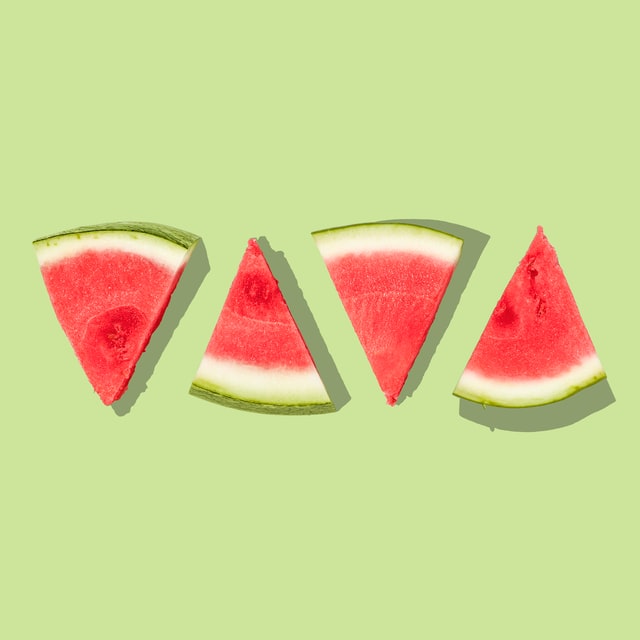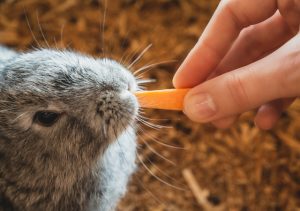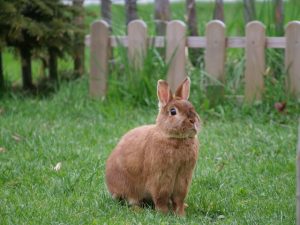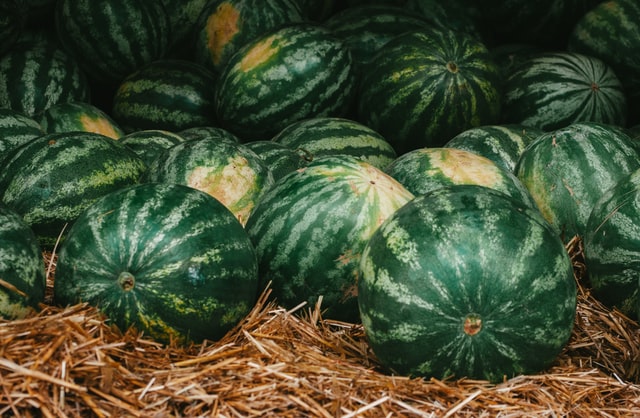
You have seen the way rabbits attack the berries when they are ripe. Well once humans eat the watermelon and all that is left is the rind with some white on it, we tend to throw it away. There is no point for us to consume it, there are no nutritional benefits to it for a human.
Contents
However, for a rabbit, there is a load of fibre in that watermelon rind.
Can A Rabbit Eat Watermelon?
The truth of the matter is that watermelon is actually a berry. Rabbits should be welcome to eat watermelon. Once they do, they go after it with gusto. They love the pink juicy part just as much. The rind is what will give them the added fibre they need.
Watermelon is a great treat for your bunny, however, it is not good to feed him too much the watermelon. A rabbit can receive 1 or 2 servings per week. The watermelon should be cut into smaller pieces so the rabbit can eat it easily. The seeds should also be removed. This should only be a treat. It is fibre, however, a rabbit needs the appropriate diet for his or her size and age, and activity level.
Benefits of Watermelon
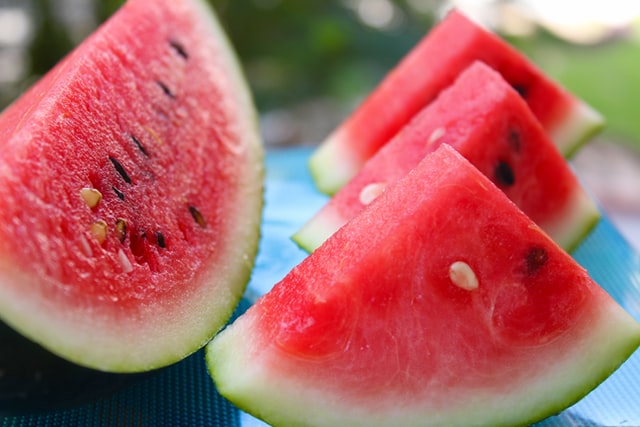
This special treat that you are able to feed to your rabbit is 91% water. That in itself is highly beneficial. It keeps the rabbit hydrated.
Watermelon also has a good supply of electrolytes in it. Electrolytes are like an electric charge that help to regulate water in the body. These electrolytes are sodium, chloride and potassium.
Watermelon also has amounts of Vitamin A and Vitamin C. These are both good for the rabbit, however, the rabbit is able to make its own supply of Vitamin C, This means there is no need to give special supplements of Vitamin C. Too much Vitamin C can lead to kidney damage, so long as it is not given in excess.
Watermelon also has a supply of magnesium in it. Magnesium is an important mineral for a rabbit to have. Rabbits can develop what is known as bladder sludge. This means there is too much calcium and it builds up in the urine.
Magnesium is especially important because a rabbit will absorb all the calcium they ingest. Whereas other animals will absorb what they need only. Due to the bladder sludge, rabbits will benefit from the magnesium in their diets. It is not just watermelon that contains magnesium. Cranberries do also.
When it comes to bladder sludge the signs to watch for include blood in the urine, frequently urinating, and sediment within the urine. If you suspect any of these signs, contact your primary veterinarian as soon as possible and this person will give you advice on what to do.
Choline is another mineral found in Watermelon. Choline is necessary to keep a body functioning properly. Choline performs tasks that are similar to Vitamin B. Choline helps to improve muscle function, sleep, metabolism and brain function.
As a snack, watermelon is one of the lowest-calorie amounts for fruits. Which easily means weight control management. There are only 46 calories in one cup of watermelon. However, keep in mind that a rabbit should only have a little watermelon once or twice a week.
Watermelon is also high in carotenoids. This is a fat-soluble pigment that gives the plant its colour. These carotenoids include beta carotene, alpha-carotene and lycopene. All of these are also known as antioxidants that fight free radical damage.
The white part of the fleshy insides and the hard outer shell is very fibrous. Rabbits need a good amount and good quality of fibre in their diets. The bits of rind and white fleshy parts you give your rabbit is going to help more than you can even imagine.
The watermelon rinds contain citrulline and less sugar which is going to help with heart health and blood vessel health.
Always remember that the white portion and the rinds should be chopped up small for your rabbit. It is easier for them to eat that way.
Negatives of Watermelon for Rabbits
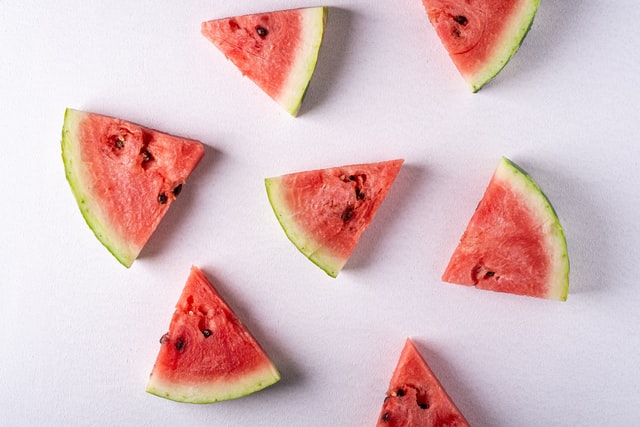
Not all good things last as good the entire time. There are some negatives when it comes to watermelon and rabbits. In general, the portion that the rabbit will likely receive is healthy for them, not so much for humans.
To list the negatives, we need to start with sugar content. The red or pink fleshy part is high in sugar which makes it not so good for your rabbit.
Why is the high sugar content important when it comes to rabbits? To answer that simply, a rabbit's stomach does not continuously move as humans do. This is called Peristalsis. Rabbits rely heavily on fibre to keep things moving in their systems.
This is why, in virtually every article you read about rabbits, it is emphasized time and time again that a rabbit needs lots of hay, and then more hay. This is how they are able to stay healthy.
Foods that are high in sugar content are quite difficult for a rabbit to digest. The high sugar content can upset the pH level in the rabbit’s stomach. All this can lead to gas, bloating and dreaded diarrhoea.
Diarrhoea, for a rabbit, is not healthy. Since a rabbit actually eats the first smaller and softer pellets when it eliminates its faeces, diarrhoea makes that difficult.
Rabbits have gentle stomachs and can be quite finicky. It is always a better choice to introduce new foods slowly. In other words, do not give your rabbit a full cup of watermelon the first time. You can give it to them one day and then watch your rabbit the following day to see if there are any negative issues taking place.
One important fact to always remember is do not feed your rabbit any snack before they have finished their daily amount of hay. The way to remember this is that the fruits should be no more than 10% of the daily diet.
The ideal amount of watermelon that can be fed to your rabbit should be 1 tablespoon of watermelon for every two pounds your rabbit weighs. If your rabbit weighs 10 pounds, it can have 5 tablespoons of watermelon.
Another negative when it comes to rabbits and watermelon. They cannot have the seeds. Not the small white seeds and definitely not the large black seeds. The watermelon seed is extremely dangerous for a rabbit. For one, they may choke on the seed and that could lead to a fatality.
Secondly, the watermelon seed can be toxic for a rabbit, if consumed in large amounts. A rabbit does not have the enzymes necessary to break down the watermelon seeds. This could lead to choking, organ failure and possibly even death.
Third and last negative pertaining to watermelon and your rabbit. We know that a rabbit does not like to bathe himself. Watermelon can be a messy treat, even if you cut it into smaller pieces. Your rabbit may splash watermelon juice onto his fur and you will need to spot wash that area or it will continue being stuck and then matting the fur.
Be sure to not feed the rabbit too much, he will definitely enjoy it, but it is meant as solely a treat for the rabbit. It is not meant to replace their daily recommended diet.
When choosing a watermelon, try to choose an organic melon. These are free from pesticides and insecticides. There is also no added wax on our portion of the watermelon.
Watermelon can be a perfectly good choice of treat for your rabbit. It is high in water content which will help the rabbit to stay hydrated. It does have minimal amounts of Vitamins and minerals within the white fleshy portion and the hard rind part. The rind is good for the rabbit as he or she will gnaw on it which will also help the rabbit's teeth and help to prevent overgrowth.
The rind has a good amount of fibre in it to help the digestive system of your rabbit.
Conclusion
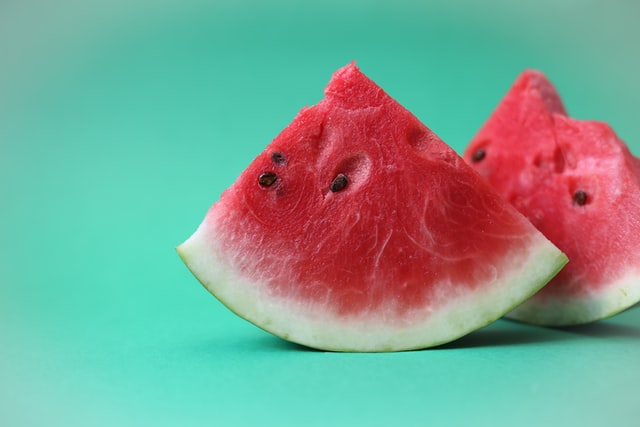
As with most items, organic is always a better purchase, due to the no pesticides or insecticides.
Some experts do warn, however, that the watermelon juice is too sugary so the rabbit should not be allowed to consume the juices. When giving your rabbit some watermelon, try to allow the cut pieces to drain somewhat. This will prevent the rabbit from having too much sugar from the juice.
You are highly advised to stay away from packaged or processed juices. If your rabbit likes watermelon, then dilute the watermelon juice by adding it to his daily water intake. This should dilute the sugar enough to spread it out over a longer time, yet still have some of the flavours the rabbit loves.
Also, remember that additives and preservatives are things that your rabbit can not deal with. They are quite harsh on the stomach, and a rabbit’s intestines will not be able to process them.
As with all foods, there is a risk of digestive disorders when too much of anything is given to a rabbit.


